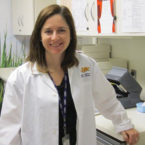Abstract
Background Understanding adverse events among children treated in the emergency department (ED) offers an opportunity to improve patient safety by providing evidence of where to focus efforts in a resource-restricted environment.
Objective To estimate the risk of adverse events, their type, preventability and severity, for children seen in a paediatric ED.
Methods This prospective cohort study examined outcomes of patients presenting to a paediatric ED over a 1-year period. The primary outcome was the proportion of patients with an adverse event (harm to patient related to healthcare received) related to ED care within 3 weeks of their visit. We conducted structured telephone interviews with all patients and families over a 3-week period following their visit to identify flagged outcomes (such as repeat ED visits, worsening symptoms) and screened admitted patients’ health records with a validated trigger tool. For patients with flagged outcomes or triggers, three ED physicians independently determined whether an adverse event occurred.
Results Of 1567 eligible patients, 1367 (87.2%) were enrolled and 1319 (96.5%) reached in follow-up. Median patient age was 4.34 years (IQR 1.5 to 10.57 years) and most (n=1281; 93.7%) were discharged. Among those with follow-up, 33 (2.5%, 95% CI 1.8% to 3.5%) suffered an adverse event related to ED care. None experienced more than one event. Twenty-nine adverse events (87.9%, 95% CI 72.7% to 95.2%) were deemed preventable. The most common types of adverse events (not mutually exclusive) were management issues (51.5%), diagnostic issues (45.5%) and suboptimal follow-up (15.2%).
Conclusion One in 40 children suffered adverse events related to ED care. A high proportion of events were preventable. Management and diagnostic issues warrant further study.
Researchers
-
Sandy Tse
Investigator, CHEO Research Institute
-
Amy Plint
Senior Scientist, CHEO Research Institute
-
Robert Klaassen
Scientist, CHEO Research Institute



